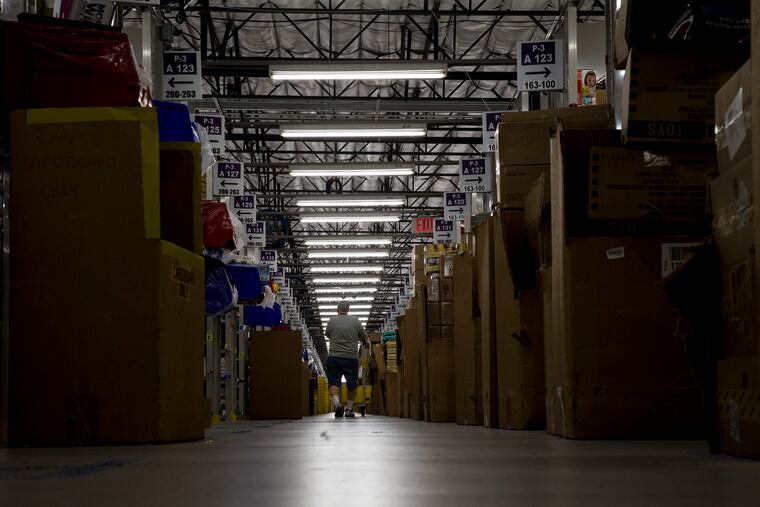Amazon must address warehouse working conditions | Opinion
When workers do get injured, they are fighting an uphill battle for workers' compensation benefits.

Labor Day recognizes the contributions of the American worker and the labor movement, but it’s also critical to acknowledge that the age-old tug-of-war between profit-seeking business and the rights of individuals to a safe and equitable workplace is very much alive and well and requires constant oversight.
Such is the case with the retail industry which has changed dramatically over the last decade as e-commerce, led by Amazon, has replaced brick-and-mortar stores. With Amazon’s ascent, there has been a surge in new warehouse jobs to staff its network of more than 175 fulfillment centers worldwide, including 10,000 Pennsylvanians.
During the boom, Amazon has been in the vanguard of using technology to track productivity data — a standard that has transformed warehouse work. The data is used to control worker output and increase efficiency.
Nearly all warehouse jobs are now using some variation of this model. Under the system, workers are constantly under pressure to "make rate," that is meet specific productivity quotas. The metrics are tracked electronically, and workers can face consequences, including termination, for not meeting these quotas.
Quotas create pressure to rush, create safety shortcuts or workarounds, and skip meals and breaks, passing up the rest necessary to prevent injury from the constant lifting, standing, and climbing up and down ladders associated with warehouse work.
The problems don't end with the safety risks, either. When workers do get injured, they are fighting an uphill battle for workers' compensation benefits.
The issue is there is no way to hold a large employer like Amazon accountable for denying benefits. Individual cases can be pursued and benefits eventually won, but any eventual payout is inconsequential to a behemoth like Amazon — one of the 30 largest companies globally with the wealthiest person in the world as its CEO.
Under the workers' compensation system of Pennsylvania and other states, there is no deterrent for Amazon and other large employers to deny benefits in every case. The company has everything to gain and not much to lose in having a blanket policy of denial. The economic and emotional pressure as well as the burden of getting an attorney are placed on the worker.
While Pennsylvania does provide that a claimant may file a penalty petition and potentially receive an additional award of up to 50 percent of any past due owed plus interest, that remedy is rarely imposed.
Another point of contention is that workers injured on the job are sent to Amazon's on-site first aid clinics, run by AmCare. Thus, from the very beginning, the workers do not control their own medical care.
In Pennsylvania, there are limitations on the health-care providers that injured workers can treat with during the first 90 days after their injury. However, the employers must post the list of doctors in the workplace. In addition, the employer must have the employee sign a document stating they’ve been informed of the list when they are hired, anytime the list is changed, AND when they are injured.
Sending an injured employee to the on-site clinic is really an attempt to subvert the requirements of the 90-day rule. In effect, the employer seizes control of the medical treatment at the earliest stage of an injury, depriving workers of objective medical opinions and taking control of their claims.
Meanwhile, Amazon has responded to growing complaints about working conditions by touting its recent $15 per hour minimum wage raise. It is true that the warehouse jobs are “good” jobs for those without a college degree and specialized skills. They pay significantly more than the federal minimum wage, the hours are predictable, and the benefits package includes health insurance, paid time off, and a 401(k) match.
Still, the emphasis of efficiency over safety has placed workers at a heightened risk for injury. When such injuries go uncompensated, the effects are devastating. Workers are far too often left without recourse. Currently, the system has failed to hold Amazon accountable.
However, as the minimum wage raise shows, Amazon has responded to criticism in past. The wage raise is a gesture of good faith demonstrating the company’s genuine concern for its employees considering that many other large companies have fought a national minimum wage raise. Thus, there is hope that the company may be amenable to addressing the working conditions of its warehouse workers.
Sam Pond is managing partner of Pond Lehocky Stern Giordano, the largest workers’ compensation and disability law firm in Pennsylvania.